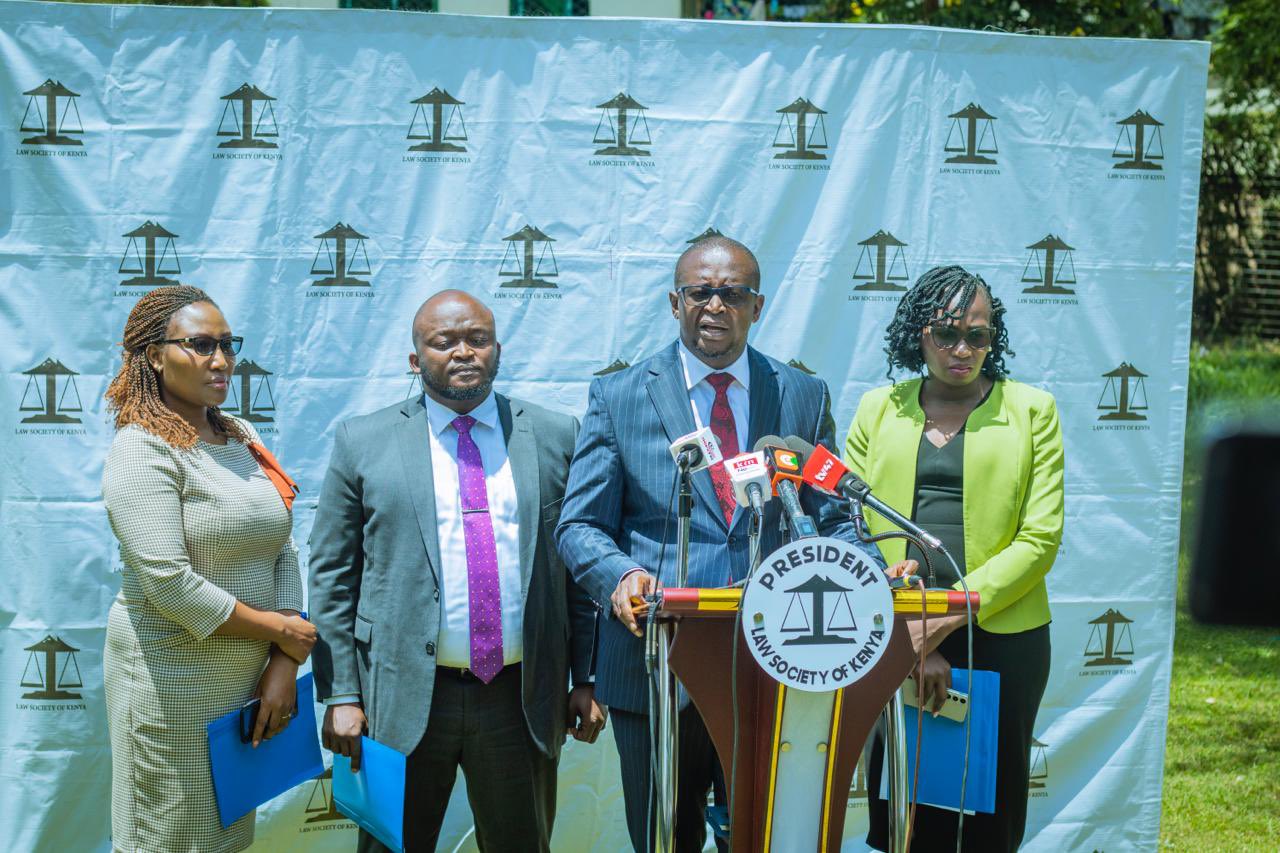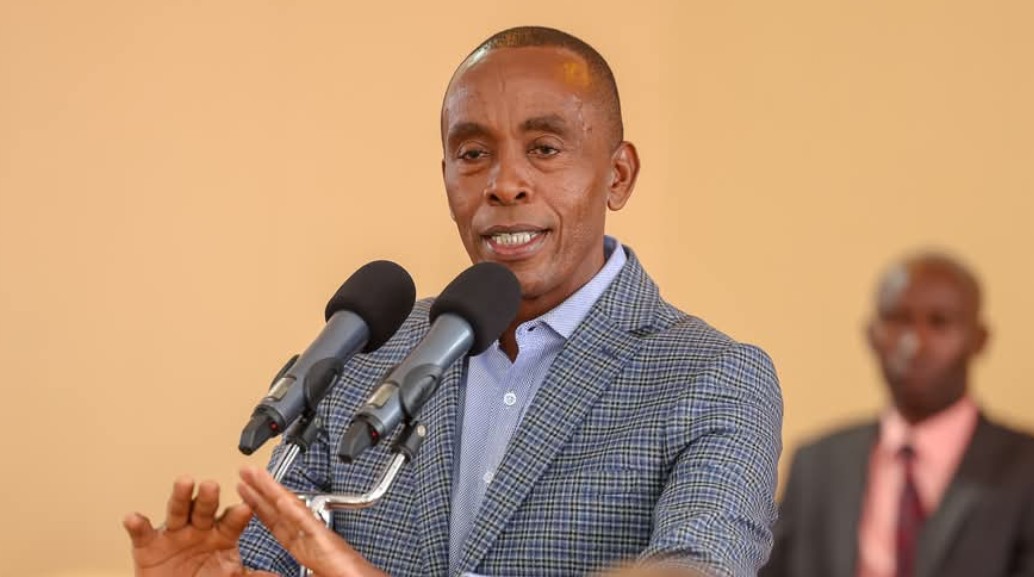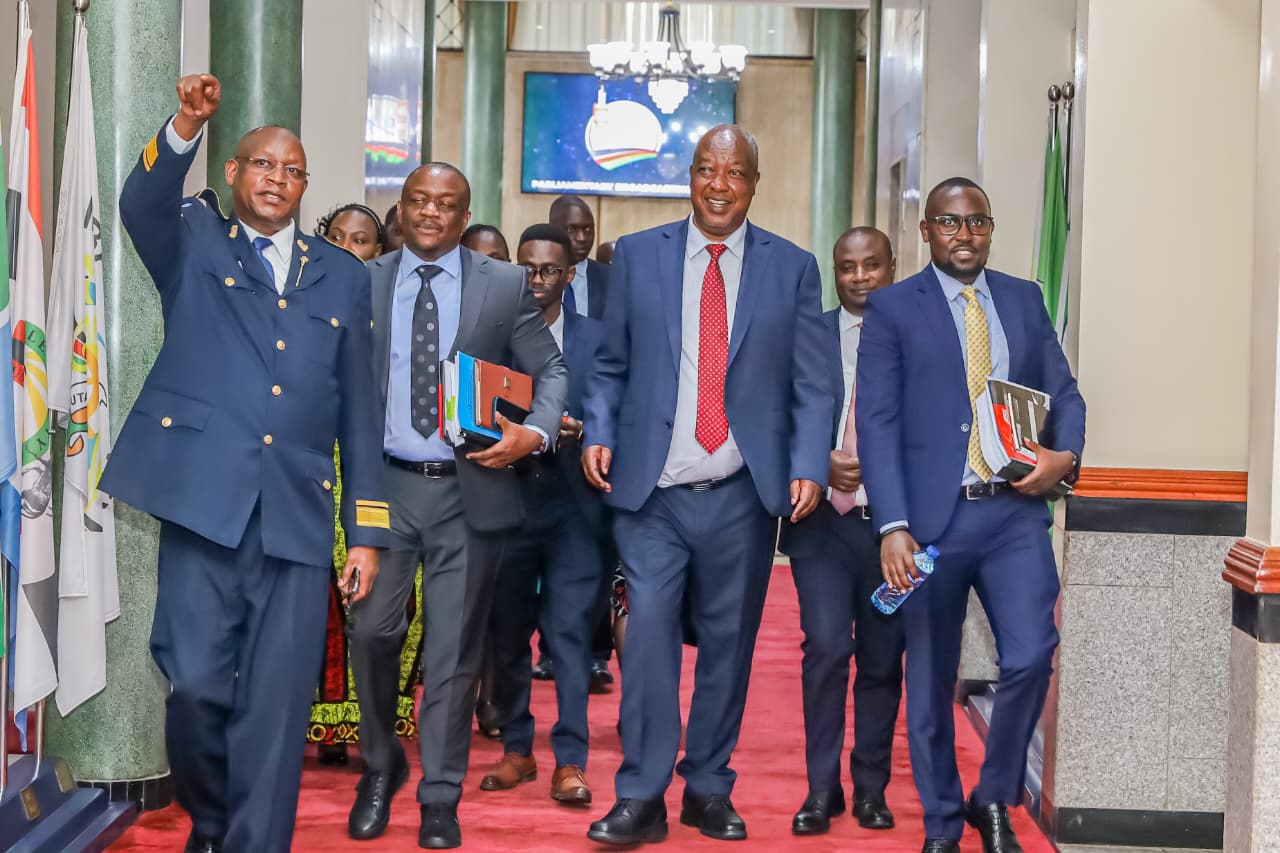LSK to sue KRA for contempt of court over 'unlawful' housing levy

LSK President Eric Theuri says there is no legal basis for the deduction, which he said constitutes contempt of court and the arbitrary imposition of tax.
The Law Society of Kenya (LSK) will pursue contempt of court charges against parties including the Commissioner-General of the Kenya Revenue Authority, over what it says is the unlawful deduction of the housing levy.
The decision follows a High Court ruling on November 28, 2023, which declared the deduction of the levy unconstitutional.
More To Read
- Parliament seeks Controller of Budget control of Sh63 billion Housing Levy to curb misuse
- LSK condemns violence in by-elections, warns of gaps ahead of 2027 polls
- Law Society of Kenya demands immediate halt to Makongeni demolitions over lack of compensation
- Businesses granted 30-day relief on long-stay container charges at Mombasa port
- Sh73.2 billion raised for Affordable Housing in 2025, only 1,795 units delivered
- Police boss Douglas Kanja opposes retirement age cap for IG, deputies
LSK President Eric Theuri, in a statement on Monday, said there is no legal basis for the deduction, which he said constitutes contempt of court and the arbitrary imposition of tax.
“It has come to our attention that the Kenya Revenue Authority and other government agencies have, despite the declaration of Section 84 as being unconstitutional, continued to deduct and remit to the Kenya Revenue Authority the housing levy,” he said.
Theuri urged affected employees to reach out to the LSK and provide their pay slips to facilitate the process of seeking refunds, assuring that their identities will be protected.
“We call on all employees who have suffered this illegal deduction to get in touch with the Law Society through email address [email protected] and share their salary pay slips to facilitate the filing of the application seeking refund of the illegally deducted dues. The pay slips will be redacted to conceal identity details that can be used to identify and possibly punish any employees that share the details with us,” he said.
Further, he called on the KRA and other accounting officers to recognise that there is no legislation authorising the implementation of the levy.
Theuri stressed that taxes cannot be collected without proper legal authorisation.
“The disregard for court orders will, if unchecked, lead to a breakdown of law and order. We remind the government that it [is obligated] to ensure the rule of law is promoted, not compromised,” he said.
Earlier on Monday, however, the High Court dismissed all 10 petitions challenging the enactment of the Affordable Housing Bill, clearing the way for the government to collect levies in its implementation.
Justice Mwanaisha Shariff on Monday dismissed a petition Lawrence Omule Apiyo filed on December 15, 2023, and nine others that were consolidated with it for joint hearing and determination.
Shariff ruled that the National Assembly conducted effective and constitutionally compliant public participation procedures.
She also said she took judicial notice of the fact that public hearings and consultations with stakeholders and experts concluded on January 30, 2024, and that the bill had already undergone a second reading in the National Assembly with a vote being taken in its favour.
The housing levy was introduced by an amendment to the Finance Act and requires both employers and employees to contribute a non-refundable levy of 1.5 per cent to the National Housing Development Fund.
Top Stories Today














































